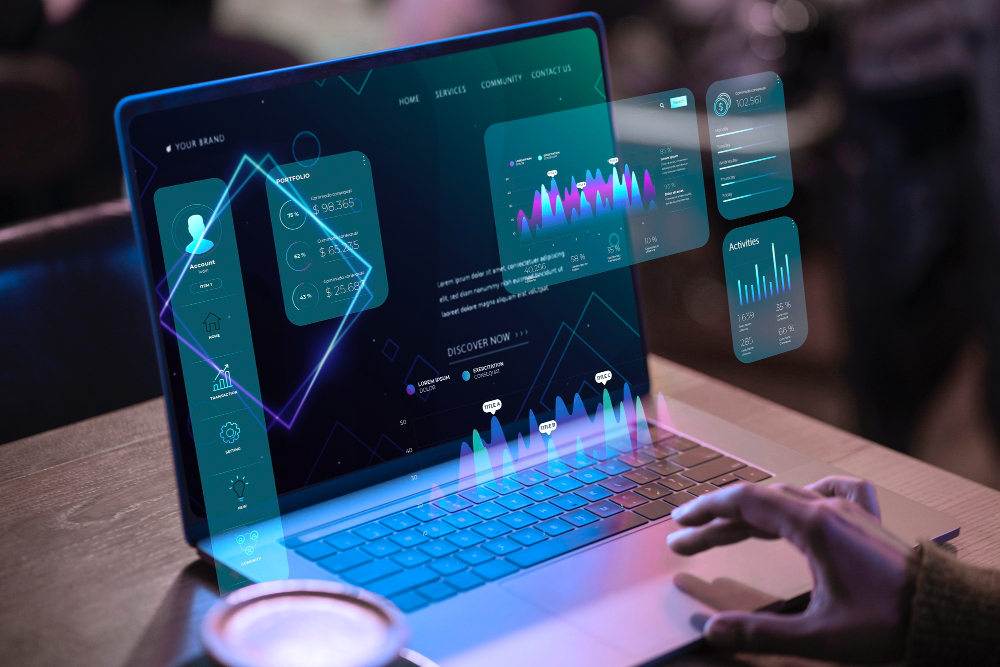
AMD has completed the acquisition of MK1, a California-based company specialising in high-speed inference and reasoning-based AI technologies.
The move marks a significant step in AMD’s strategy to strengthen AI performance and efficiency across hardware and software layers. MK1’s Flywheel and comprehension engines are designed to optimise AMD’s Instinct GPUs, offering scalable, accurate, and cost-efficient AI reasoning.
The MK1 team will join the AMD Artificial Intelligence Group, where their expertise will advance AMD’s enterprise AI software stack and inference capabilities.
Handling over one trillion tokens daily, MK1’s systems are already deployed at scale, providing traceable and efficient AI solutions for complex business processes.
By combining MK1’s advanced AI software innovation with AMD’s compute power, the acquisition enhances AMD’s position in the enterprise and generative AI markets, supporting its goal of delivering accessible, high-performance AI solutions globally.
Would you like to learn more about AI, tech and digital diplomacy? If so, ask our Diplo chatbot!

Samsung has unveiled the Vision AI Companion, an advanced conversational AI platform designed to transform the television into a connected household hub.
Unlike voice assistants meant for personal devices, the Vision AI Companion operates on the communal screen, enabling families to ask questions, plan activities, and receive visualised, contextual answers through natural dialogue.
Built into Samsung’s 2025 TV lineup, the system integrates an upgraded Bixby and supports multiple large language models, including Microsoft Copilot and Perplexity.
With its multi-AI agent platform, Vision AI Companion allows users to access personalised recommendations, real-time information, and multimedia responses without leaving their current programme.
It supports 10 languages and includes features such as Live Translate, AI Gaming Mode, Generative Wallpaper, and AI Upscaling Pro. The platform runs on One UI Tizen, offering seven years of software upgrades to ensure longevity and security.
By embedding generative AI into televisions, Samsung aims to redefine how households interact with technology, turning the TV into an intelligent companion that informs, entertains, and connects families across languages and experiences.
Would you like to learn more about AI, tech and digital diplomacy? If so, ask our Diplo chatbot!

A Munich regional court has ruled that OpenAI infringed copyright in a landmark case brought by the German rights society GEMA. The court held OpenAI liable for reproducing and memorising copyrighted lyrics without authorisation, rejecting its claim to operate as a non-profit research institute.
The judgement found that OpenAI had violated copyright even in a 15-word passage, setting a low threshold for infringement. Additionally, the court dismissed arguments about accidental reproduction and technical errors, emphasising that both reproduction and memorisation require a licence.
It also denied OpenAI’s request for a grace period to make compliance changes, citing negligence.
Judges concluded that the company could not rely on proportionality defences, noting that licences were available and alternative AI models exist.
OpenAI’s claim that EU copyright law failed to foresee large language models was rejected, as the court reaffirmed that European law ensures a high level of protection for intellectual property.
The ruling marks a significant step for copyright enforcement in the age of generative AI and could shape future litigation across Europe. It also challenges technology companies to adapt their training and licensing practices to comply with existing legal frameworks.
Would you like to learn more about AI, tech and digital diplomacy? If so, ask our Diplo chatbot!

Canada and Denmark have signed a joint statement to deepen collaboration in quantum research and innovation.
The agreement, announced at the European Quantum Technologies Conference 2025 in Copenhagen, reflects both countries’ commitment to advancing quantum science responsibly while promoting shared values of openness, ethics and excellence.
Under the partnership, the two nations will enhance research and development ties, encourage open data sharing, and cultivate a skilled talent pipeline. They also aim to boost global competitiveness in quantum technologies, fostering new opportunities for market expansion and secure supply chains.
Canadian Minister Mélanie Joly highlighted that the cooperation showcases a shared ambition to accelerate progress in health care, clean energy and defence.
Denmark’s Minister for Higher Education and Science, Christina Egelund, described Canada as a vital partner in scientific innovation. At the same time, Minister Evan Solomon stressed the agreement’s role in empowering researchers to deliver breakthroughs that shape the future of quantum technologies.
Both Canada and Denmark are recognised as global leaders in quantum science, working together through initiatives such as the NATO Transatlantic Quantum Community.
A partnership that supports Canada’s National Quantum Strategy, launched in 2023, and reinforces its shared goal of driving innovation for sustainable growth and collective security.
Would you like to learn more about AI, tech and digital diplomacy? If so, ask our Diplo chatbot!

A High Court judge warned that a solicitor who pushed an expert to accept an AI-generated draft breached their duty. Mr Justice Waksman called it a gross breach and cited a case from the latest survey.
He noted 14% of experts would accept such terms, which is unacceptable.
Updated guidance clarifies what limited judicial AI use is permissible. Judges may use a private ChatGPT 365 for summaries with confidential prompts. There is no duty to disclose, but the judgment must be the judge’s own.
Waksman cautioned against legal research or analysis done by AI. Hallucinated authorities and fake citations have already appeared. Experts must not let AI answer the questions they are retained to decide.
Survey findings show wider use of AI for drafting and summaries. Waksman drew a bright line between back-office aids and core duties. Convenience cannot trump independence, accuracy and accountability.
For practitioners, two rules follow. Solicitors must not foist AI-drafted expert opinions, and experts should refuse. Within courts, limited, non-determinative AI may assist, but outcomes must be human.
Would you like to learn more about AI, tech, and digital diplomacy? If so, ask our Diplo chatbot!

India’s data centre market is expanding rapidly, driven by rapid AI adoption, mobile internet growth, and massive foreign investment from firms such as Google, Amazon and Meta. The sector is projected to expand 77% by 2027, with billions more expected to be spent on capacity by 2030.
Rapid expansion of energy-hungry and water-intensive facilities is creating serious sustainability challenges, particularly in water-scarce urban clusters like Mumbai, Hyderabad and Bengaluru. Experts warn that by 2030, India’s data centre water consumption could reach 358 billion litres, risking shortages for local communities and critical services in India.
Authorities and industry players are exploring solutions including treated wastewater, low-stress basin selection, and zero-water cooling technologies to mitigate environmental impact. Officials also highlight the need to mandate renewable energy use to balance India’s digital ambitions with decarbonisation goals.
Would you like to learn more about AI, tech and digital diplomacy? If so, ask our Diplo chatbot!

Oracle Health and Life Sciences has announced a strategic collaboration with the Cancer Center Informatics Society (Ci4CC) to accelerate AI innovation in oncology. The partnership unites Oracle’s healthcare technology with Ci4CC’s national network of cancer research institutions.
The two organisations plan to co-develop an electronic health record system tailored to oncology, integrating clinical and genomic data for more effective personalised medicine. They also aim to explore AI-driven drug development to enhance research and patient outcomes.
Oracle executives said the collaboration represents an opportunity to use advanced AI applications to transform cancer research. The Ci4CC President highlighted the importance of collective innovation, noting that progress in oncology relies on shared data and cross-institution collaboration.
The agreement, announced at Ci4CC’s annual symposium in Miami Beach US, remains non-binding but signals growing momentum in AI-driven precision medicine. Both organisations see the initiative as a step towards turning medical data into actionable insights that could redefine oncology care.
Would you like to learn more about AI, tech and digital diplomacy? If so, ask our Diplo chatbot!

As interest in AI grows, many companies that previously cut staff are now rehiring some of the same employees. Visier data shows about 5.3 percent of laid-off workers have returned, marking a steady but rising trend.
The findings suggest AI adoption has not yet replaced human labour at the scale some executives anticipated.
Visier’s analysis of 2.4 million employees across 142 global companies indicates that AI tools often automate parts of tasks rather than entire jobs. Experts say organisations are realising that AI implementation costs, including infrastructure, data systems, and security, often exceed initial projections.
Many companies now rely on experienced staff to manage or complement AI tools effectively.
Industry observers highlight a gap between expectations and outcomes. MIT research shows around 95 percent of firms have yet to see measurable financial returns from AI investments.
Cost-cutting measures such as layoffs also carry hidden expenses, with estimates suggesting companies spend $1.27 for every $1 saved when reducing staff.
Executives are urged to carefully assess AI’s true impact before assuming workforce reductions will deliver long-term savings. Rehiring former employees has become a practical response to bridge skill gaps and ensure technology integration succeeds without disrupting operations.
Would you like to learn more about AI, tech and digital diplomacy? If so, ask our Diplo chatbot!

The National Telecommunication Institute (NTI) and Misr University for Science and Technology (MUST) jointly hosted a conference titled Artificial Intelligence for Environmental Sustainability.
The event focused on using technology to tackle global environmental challenges.
The conference aimed to advance research and innovation in applying artificial intelligence (AI) to support sustainable development.
Experts and academics discussed how AI can enhance environmental protection through smarter data analysis, improved monitoring systems, and reduced carbon emissions. The sessions explored AI’s role in promoting sustainability and highlighted new applications designed to manage resources more efficiently.
Students from MUST’s Faculty of Information Technology presented projects that showcased practical AI solutions for building a greener future. Their work reflected the conference’s goal of encouraging collaboration and applied research to address urgent environmental issues.
Would you like to learn more about AI, tech and digital diplomacy? If so, ask our Diplo chatbot!

The United Nations Development Programme (UNDP) has officially expanded its Blockchain Academy to reach 24,000 personnel worldwide, including staff from UNDP, UN Volunteers, and the United Nations Capital Development Fund (UNCDF).
The initiative, launched in partnership with the Algorand Foundation, aims to strengthen understanding and practical use of blockchain technology to support sustainable development goals.
The academy’s expanded curriculum builds on a successful beta phase that certified over 30 UN personnel and introduced 18 hours of specialised training. It now offers advanced modules to help UN staff design transparent and efficient blockchain solutions for real-world challenges.
The training also fosters a collaborative network where participants share best practices and develop blockchain-driven projects across global programmes.
UNDP has used blockchain since 2015 to boost transparency and inclusion, from tracking supply chains to supporting energy trading and digital investments. Through its Algorand partnership, UNDP aims to speed up blockchain adoption by offering technical support and project incubation for scalable sustainable impact.
Would you like to learn more about AI, tech and digital diplomacy? If so, ask our Diplo chatbot!










